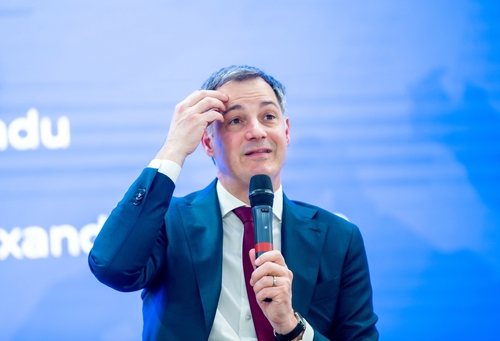
The right-wing identity of the New Flemish Alliance and Vlaams Belang asserts itself
During the European elections in Belgium, over 8 million Belgians were called to vote for the renewal of the national Parliament. The outcome was decisive and, in some respects, surprising, signaling the conclusion of Alexander De Croo’s government (Open VLD, RE).
The party that received the highest number of votes was actually the New Flemish Alliance (N-VA, ECR) led by Bart De Wever, followed by Vlaams Belang (VB, ID) led by Tom Van Grieken, which secured 17% of the vote and 24 seats, and 14% of the vote and 20 seats respectively. The third-place spot went to the Reform Movement (MR, RE), a French-speaking liberal party led by Georges-Louis Bouchez, which also has ties to the current President of the European Council, Charles Michel.
Until now, the Government was governed by Alexander De Croo and supported by the “Vivaldi Coalition”: this curious name derived from the fact that four different political visions were present within the coalition, that of the liberals (MR and Open VLD), that of the socialists (SP.A and PS), that of the greens (Groen and Ecolo) and that of the Christian Democrats (CD&V). This broad coalition, however, garnered 48.01% of the votes and 76 seats, numbers in themselves sufficient to maintain the Government but insufficient to guarantee stability given the many political subjects and the slim majority out of the 150 parliamentarians foreseen by the Belgian system.
Belgian Prime Minister De Croo congratulated the winners and announced his resignation. He is now focusing on handling current affairs and facilitating a transition to a new government, with the liberals expected to play a key role. King Philippe accepted his resignation and subsequently invited the leaders of N-VA, VB, and MR to the Royal Palace in Brussels.
The objectives, now, are very different between the various political forces: the liberals aspire to rediscover compactness and unity even at the expense of the alliance with the left, just look at the declarations of Bouchez who stated that “the left praises democracy when gives the results that suit it”, he reiterated that only the liberals have put citizens’ concerns on the table and that responsible work begins now; De Wever has the opportunity to build a center-right around his party that can valorize the Flemish identity and the benefits of Belgian federalism without giving up a pro-European vocation; Vlaams Belang instead aims to improve the result on Flemish territory as much as possible to increasingly raise the stakes.
It is difficult to say now who could take the Government, although a coalition that takes the Liberals, the Christian Democrats, and the N-VA cannot be ruled out, reaching 76 out of 150. A result that would simply represent history, surpassing years of governments “of broad agreements” and finally working on an authentic Belgian center-right.
At the same time, the European elections were held, where the “win” was the Vlaams Belang with 14.5% and 3 seats, followed by the N-VA with 14% and 3 seats and MR with 13% and also 3 seats. The Belgian Labor Party (PTB-PVDA, GUE/NGL) made a strong statement at 11% with 2 seats. The biggest drop was recorded by the green formations, with Groen and Ecolo together winning only 10% compared to 15% five years ago and one seat less. The Socialists also showed a slight decline, closing together at 15.5% with 4 seats, paradoxically one more than in the previous European legislature.
The trend is unmistakable: the identity parties of Flanders (the region to the north of Belgium) have strengthened, the liberals have maintained their position in the French-speaking South, the “moderate” left has diminished, and the most extreme left and the Christian center are shifting the balance.



 Subscribe
Subscribe